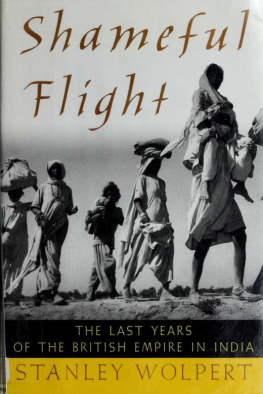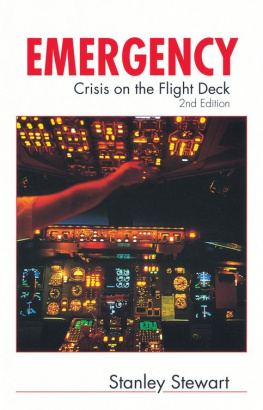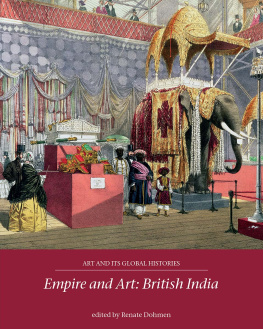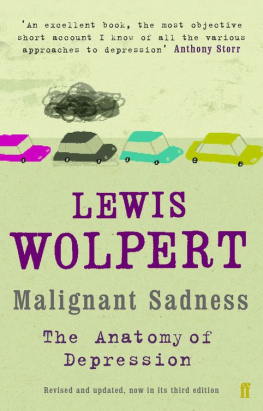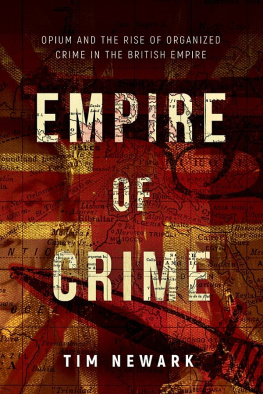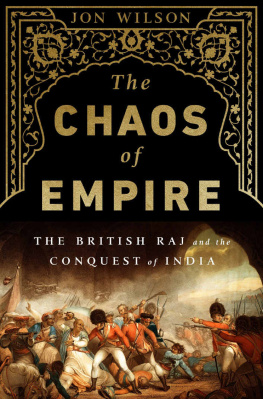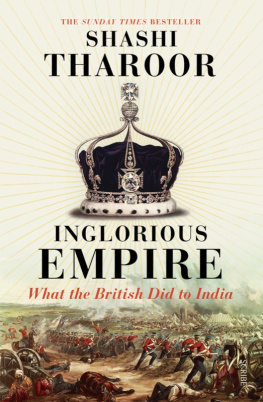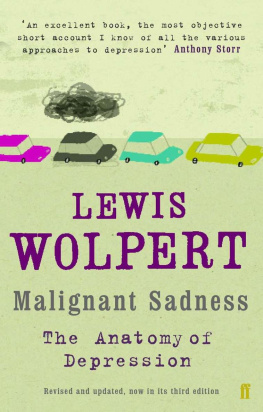Stanley Wolpert - Shameful Flight: The Last Years of the British Empire in India
Here you can read online Stanley Wolpert - Shameful Flight: The Last Years of the British Empire in India full text of the book (entire story) in english for free. Download pdf and epub, get meaning, cover and reviews about this ebook. year: 2006, publisher: Oxford University Press, genre: History. Description of the work, (preface) as well as reviews are available. Best literature library LitArk.com created for fans of good reading and offers a wide selection of genres:
Romance novel
Science fiction
Adventure
Detective
Science
History
Home and family
Prose
Art
Politics
Computer
Non-fiction
Religion
Business
Children
Humor
Choose a favorite category and find really read worthwhile books. Enjoy immersion in the world of imagination, feel the emotions of the characters or learn something new for yourself, make an fascinating discovery.
- Book:Shameful Flight: The Last Years of the British Empire in India
- Author:
- Publisher:Oxford University Press
- Genre:
- Year:2006
- Rating:5 / 5
- Favourites:Add to favourites
- Your mark:
- 100
- 1
- 2
- 3
- 4
- 5
Shameful Flight: The Last Years of the British Empire in India: summary, description and annotation
We offer to read an annotation, description, summary or preface (depends on what the author of the book "Shameful Flight: The Last Years of the British Empire in India" wrote himself). If you haven't found the necessary information about the book — write in the comments, we will try to find it.
Shameful Flight: The Last Years of the British Empire in India — read online for free the complete book (whole text) full work
Below is the text of the book, divided by pages. System saving the place of the last page read, allows you to conveniently read the book "Shameful Flight: The Last Years of the British Empire in India" online for free, without having to search again every time where you left off. Put a bookmark, and you can go to the page where you finished reading at any time.
Font size:
Interval:
Bookmark:

This book made available by the Internet Archive.





To the memory of the million defenseless Hindu, Muslim, and Sikh victims of British India's Partition
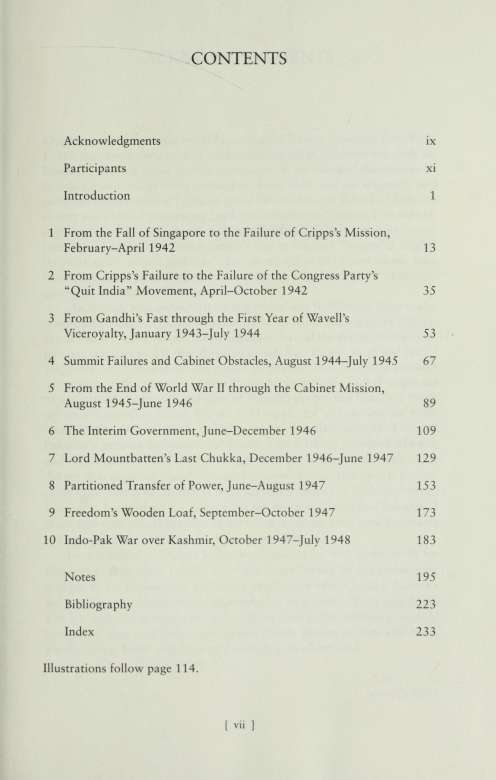
ACKNOWLEDGMENTS
Khushwant Singh's searing novel Mano Majra {Train to Pakistan, New York, 1956), first made me aware of the human impact of Partition's tragedy on Punjab. I became more acutely conscious of the historic dimensions of Britain's irresponsibly hasty withdrawal from India and the economic and political consequences of Partition when I worked on my ]innab of Pakistan twenty years later. Interviewing Lord Mountbatten in London, I sensed hidden sources of that multifaceted debacle but failed fully to grasp its poison roots until I focused on Mountbatten's role in Britain's "Shameful Flight" six years ago. I am indebted once again to my oldest and wisest friend, John Kenneth Galbraith, for urging me to write "a new history" of Partition's genesis and its disastrous consequences.
Many other wise gurus, first among whom was W. Norman Brown who taught me Sanskrit in his Department of South Asian Studies at the University of Pennsylvania, helped me to fathom India and the depths of this complex and tragic story. My dear departed friends Raja Dinesh Singh and Justice Nagendra Singh taught me the power of modern India's courtly patience and ancient political roots. Former Prime Minister Inder Gujral taught me to understand the beauty and pain of Punjab's poetry and history. I thank my most hospitable friend, Dr. A. S. Marwah, for introducing me to so many luminaries of India's Punjab over the last half century. Three of Pakistan's greatest diplomats, Sahibzada Yaqub Khan, Jamsheed Marker, and Akbar Ahmed, have helped me appreciate the best of Islamic culture, as did my dear departed friend Gustave von Grunebaum. There are too many other kind friends to list in this brief acknowledgment of lifelong debts to those who have helped me understand the history of India and Pakistan. I must, however, also thank two of my finest students, both now Professors of Indian History, Sita Anantha Raman, and Ravi Kalia.
I am indebted to Oxford University Press for its faith in my work for more than thirty years. I thank my editor, Susan Ferber, for her painstaking critique of my manuscript, and senior production editor Joellyn Ausanka for so efficiently expediting its reincarnation as a book. To my son Adam and his bride, Katy, thanks for restoring my faith in the limitless powers of love, as to Dan and Debra, and grandfatherly thanks to Sam and Max. Finally, to my better self, Dearest Dorothy, goes all my love.
S.W. March 2006
PARTICIPANTS
Ambedkar, Dr. B. R. (1891-1956), "untouchable" leader, barrister; Nehru's minister of law; chaired the government of India's constitution-drafting committee.
Amery, Leopold Charles (1873-1955), secretary of state for India, 1940-45.
Attlee, Clement Richard (1883-1965), earl; deputy prime minister, war cabinet, 1942-45; prime minister of Britain's Labor government, July 1945-50.
Auchinleck, Field Marshal Sir Claude (1884-1981), commander-in-chief, India, June 1943-47.
Azad, Maulana Abul Kalam (1888-1958), president of Indian National Congress, 1939-46; minister of education, government of India, 1947-58.
Churchill, Sir Winston Leonard Spencer (1874-1965), prime minister, 1940-July 45; leader of the opposition from August 1945.
Cripps, Sir Richard Stafford (1889-1952), Labor member of Parliament; leader of the House of Commons and lord privy seal; war cabinet, 1942-45; sole mission for cabinet to India, 1942; member of cabinet mission in 1946; president of board of trade, 1947-48.
Gandhi, Mohandas Karamchand (1869-1948), Mahatma ("Great Soul"); spiritual leader of India and of the Indian National Congress.
Ismay, Hastings Lionel, Baron Ismay of Wormington (1887-1965), chief of Mountbatten's staff.
Jenkins, Sir Evan Meredith (1896-1985), P.S.V., 1943-45; governor of Punjab, 1946-47.
Jinnah, Muhammad Ali (1876-1948), Quaid-i-Azam ("Great Leader") and president of the Muslim League; also serving until his death as first governor-general of Pakistan.
Khan, Liaquat Ali (1895-1951), Jinnah's deputy leader of the Muslim League; finance member of the interim government, 1946-47; first prime minister of Pakistan, 1947-51.
Participants
Linlithgow, Lord Victor Alexander John (1887-1952), viceroy of India, 1936-October 1943.
Mountbatten, Rear-Admiral Viscount Lord Louis Francis Albert Victor (1900-1979), viceroy of India, March-August 1947; first governor-general of dominion of India, 1947-48.
Nehru, Jawaharlal (1889-1964), president of Indian National Congress, 1929-30, 1946; first prime minister of India, 1947-64.
Pant, G. B. (1887-1961), Congress political leader; chief minister of Uttar Pradesh; home minister of India.
Patel, Sardar Vallabhbhai (1875-1950), Gandhi's disciple; Nehru's home member of the interim government; first deputy prime minister of India, 1947-50.
Pethick-Lawrence, Lord (1871-1961), secretary of state for India, 1945-April 1947; chair of 1946 cabinet mission, 1945-April 1947.
Radcliffe, Sir Cyril (1899-1977), chairman, Punjab and Bengal boundary commissions, 1947.
Rajagopalachari, C. (1878-1972), south Indian leader of Congress; chief minister of Madras; governor of Bengal (1947); governor-general of India (1948-50).
Roosevelt, Franklin Delano (1882-1945), president of the United States, 1933-1945.
Singh, Master Tara (1885-1967), Sikh political leader of the Akali Dal; first to demand a separate Sikh nation-state of "Sikhistan" in 1946-47.
Suhrawardy, H. S. (1893-1963), Muslim League chief minister of Bengal, 1946; founding leader of the Awami League; prime minister of Pakistan
(1956-57).
Wavell, Field Marshal Sir Archibald Percival (1883-1950), commander-in-chief, India, 1941; supreme commander South-West Pacific, December 1941-June 1943; viceroy of India, October 1943-47.
Shameful Flight
Introduction
IN MID-AUGUST OF 1947 the world's mightiest modern empire, on which "the sun never set," abandoned its vow to protect one-fifth of humankind. Britain's shameful flight from its Indian Empire came only ten weeks after its last viceroy, Lord Louis ("Dickie") Mountbatten, took it upon himself to cut ten months from the brief time allotted by the Labor government's cabinet to withdraw its air and fleet cover, as well as the shield of British troops and arms, from South Asia's 400 million Hindus, Muslims, and Sikhs.
Prime Minister Clement Attlee and his cabinet gave Mountbatten until June of 1948 to try to facilitate agreement between the major competing political party leaders of India to work together within a single federation. But adrenaline-charged Mountbatten scuttled that last best hope of the British Imperial Raj ( Sanskrit for "King" or "Ruler" and by extension "Rule" or "Government") to leave India to a single independent government, deciding instead to divide British India into fragmented dominions of India and Pakistan. The hastily and ineptly drawn lines of partition of North India's two greatest provinces, Punjab and Bengal, slashed through their multicultural heartlands. They were drawn by an English jurist who had never set foot on the soil of either province. Following Britain's flight, a tsunami of more than ten million desperate refugees swept over North India: Hindus and Sikhs rushed to leave ancestral homes in newly created Pakistan, Muslims fled in panic out of India. Each sought shelter in next-door's dominion. Estimates vary as to the number who expired or were murdered before ever reaching their promised land. A conservative statistic is 200,000; a more realistic total, at least one million. 1
Font size:
Interval:
Bookmark:
Similar books «Shameful Flight: The Last Years of the British Empire in India»
Look at similar books to Shameful Flight: The Last Years of the British Empire in India. We have selected literature similar in name and meaning in the hope of providing readers with more options to find new, interesting, not yet read works.
Discussion, reviews of the book Shameful Flight: The Last Years of the British Empire in India and just readers' own opinions. Leave your comments, write what you think about the work, its meaning or the main characters. Specify what exactly you liked and what you didn't like, and why you think so.

